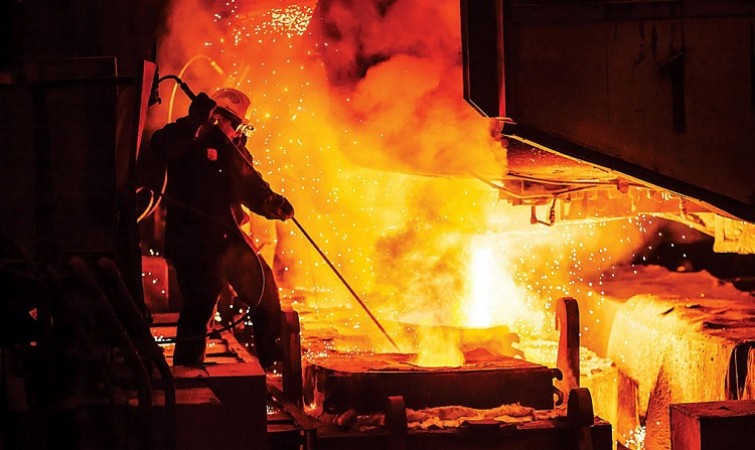
New Delhi: Taking a decisive stride towards a greener and more sustainable future for the steel industry, the government announced on Tuesday the creation of 13 dedicated task forces. These task forces are composed of a diverse range of key stakeholders, including industry experts, academia, think tanks, scientific and technological bodies, and various ministries.
The primary objective of these task forces is to deliberate and formulate comprehensive strategies and recommendations aimed at facilitating the crucial decarbonization of the steel sector. This initiative marks a pivotal step towards aligning the industry with environmentally responsible practices.
Among the task forces, the one focused on skill development takes a central role. It has been assigned the pivotal responsibility of engaging in discussions centered around skilling, up-skilling, and re-skilling of the workforce. This proactive approach aims to prepare the industry's labor force for the production of green steel, thereby ensuring a just and seamless transition for the steel sector.
In line with its commitment to sustainability, the government has initiated an array of measures designed to propel the production and utilization of high-quality steel derived from recycled materials. These measures encompass stringent quality standards that steel producers must adhere to.
To translate this vision into reality, the Ministry of Steel has officially introduced 145 Indian Standards that are applicable to steel and steel products under the Quality Control Order (QCO). This crucial step has been taken to assure the public of top-notch products regardless of the source materials, thereby fostering confidence in the steel industry.
A standout milestone in the journey towards a sustainable steel sector is the 2019 Steel Scrap Recycling Policy. This policy plays a pivotal role in bolstering the availability of domestically sourced scrap materials. By increasing accessibility to scrap materials, the policy simultaneously reduces reliance on coal in the steel manufacturing process, contributing to a more environmentally friendly and responsible production landscape.
In tandem with the aforementioned efforts, the introduction of the Motor Vehicles (Registration and Functions of Vehicles Scrapping Facility) Rules on September 23, 2021, is a strategic move aimed at enhancing the availability of scrap within the steel sector. This move not only streamlines the recycling process but also ensures a consistent and reliable supply of scrap materials for steel production, establishing a holistic and sustainable resource cycle.
Underpinning the steel industry's commitment to progress is its widespread adoption of Best Available Technologies (BAT) on a global scale for modernization and expansion projects. Embracing cutting-edge technologies positions the sector to further enhance operational efficiency, product quality, and overall sustainability.
The government's establishment of these task forces underscores a resolute dedication to shaping a steel industry that is environmentally conscious, quality-focused, and future-ready. By fostering collaboration among diverse stakeholders and implementing forward-thinking policies, the path to a decarbonized and enhanced steel sector is being paved.
RBI's August 10th Policy: Will MPC Maintain Unchanged Rates and Stance?
India's Vision 2030: Economic Powerhouse, Global Influence and more